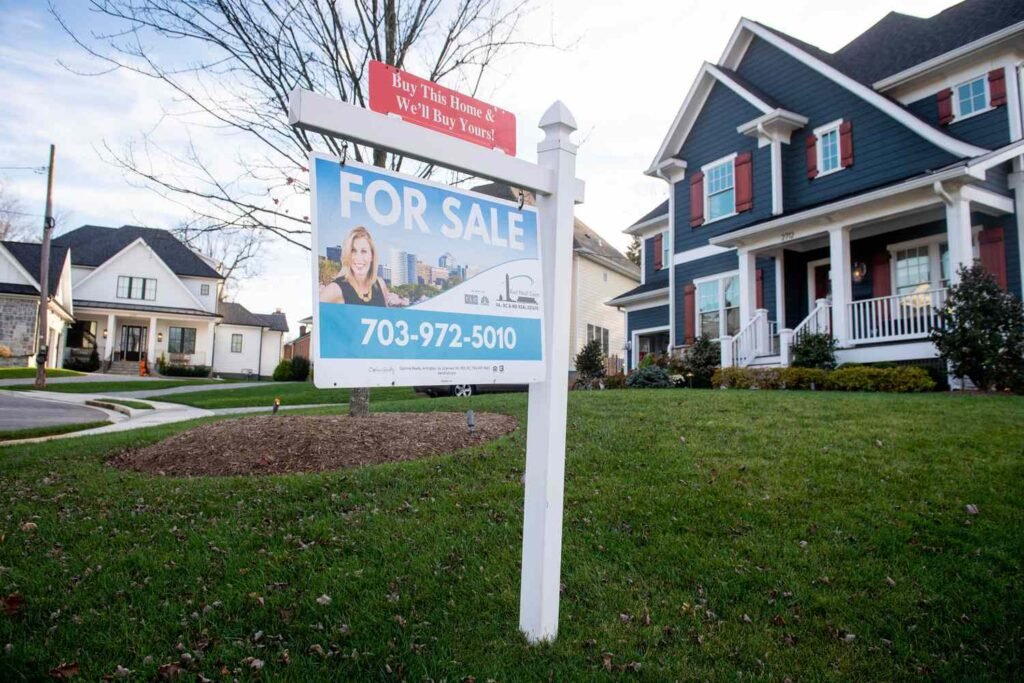Key Takeaways
- While higher interest rates have had less impact than expected in some areas of the economy, they are holding back the housing market, economists said.
- Average mortgage rates on a 30-year, fixed-rate loan came in at 7.10% last week, according to Freddie Mac.
- That’s the first time this year that mortgage rates have crossed the 7% threshold after spiking last fall.
- The jump in mortgage rates comes as stubborn inflation is giving forecasters and economists pause on whether the Federal Reserve can ease its monetary policy.
The job market is humming, retail sales remain strong and stocks recently hit all-time highs, giving Federal Reserve officials cause to question whether moving interest rates to two-decade highs is slowing the economy enough to undercut inflation.
But one area where the Fed’s interest rate hikes have been substantially restrictive on the economy is housing, which BMO Economics Senior Economist Sal Guatieri said is bearing the brunt of high interest rates.
“Home buyers can only wish the Fed was in more of a rush to reduce rates. While most sectors continue to show resiliency, the housing market isn’t one of them,” Guatieri wrote in a recent report.
The housing market has been suffering under high interest rates that discourage homeowners with better terms from selling and keep many potential buyers priced out.
In his note, Guatieri pointed out that not only are home sales about 20% below long-run averages, the softened demand is keeping builders from starting work on new homes at about equally low levels. The main culprit, Guatieri wrote, is persistently high borrowing costs.
Mortgage Rates Hit 2024 Highs
Mortgage rates rose above 7% for the first time this year last week after Federal Reserve officials pondered pushing back the timeline for when they will cut their influential fed funds rate. The fed funds rate affects many types of credit, including mortgages. High interest rates are designed to fight inflation, which has been stubbornly high this year.
“A reversal in borrowing costs has kept affordability in the tank at the same time that other housing-related costs—insurance, taxes, maintenance—are soaring,” Guatieri wrote.
The average interest rate on a 30-year, fixed-rate mortgage rose to 7.10%, according to Freddie Mac. That’s up from 6.88% in the prior week and up from 6.39% this time last year. Interest rates had been hovering below the 7% threshold since mid-December.
High interest rates have kept many potential buyers out of the market and kept potential sellers who have the low interest rates of the pandemic era rooted in place. That situation has left relatively few homes for sale and pushed up prices on homes across the country.
Rate Cut Hopes Fading
Investors are losing hope that cuts to the fed funds rate are imminent and many forecasts now predict only one rate cut later this year. That could cause mortgage rates to rise even further.
“Despite mortgage rates being at highs last seen in December, mortgage applications have increased for two consecutive weeks,” said Bob Broeksmit, president and CEO of the Mortgage Bankers Association in a prepared statement. “Recent economic data shows that the economy and job market remain strong, which is likely to keep mortgage rates at these elevated levels for the near future.”
However, facing the potential for even higher mortgages may change the equation for some buyers and sellers.
“As rates trend higher, potential homebuyers are deciding whether to buy before rates rise even more or hold off in hopes of decreases later in the year,” said Sam Khater, Freddie Mac’s chief economist, in a prepared statement last Thursday. “Last week, purchase applications rose modestly, but it remains unclear how many homebuyers can withstand increasing rates in the future.”

